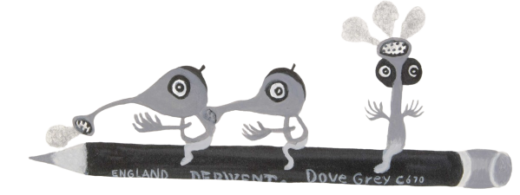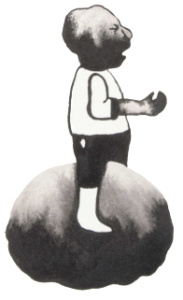 On July 8, 2010, the European Court of Justice ruled on the circumstances of trademark infringement by the use of Google AdWords. AdWords are search words that, if they are typed in a search engine like Google by an internet user, create sponsored links or advertisements next to the “objective” results that are selected on the basis of algorithm. AdWords are sold by an auction to the highest bidder. The highest bidders gets the top sponsored link in the search results. Earlier this year, the Court published a ruling concerning the responsibility of Google herein.
On July 8, 2010, the European Court of Justice ruled on the circumstances of trademark infringement by the use of Google AdWords. AdWords are search words that, if they are typed in a search engine like Google by an internet user, create sponsored links or advertisements next to the “objective” results that are selected on the basis of algorithm. AdWords are sold by an auction to the highest bidder. The highest bidders gets the top sponsored link in the search results. Earlier this year, the Court published a ruling concerning the responsibility of Google herein.
These Dutch proceedings concern two competitors: Portakabin produces and sells mobile building systems and is the holder of the trademark “Portakabin”. Its competitor Primakabin sells and rents out new and second hand mobile building systems. For a big part, the trade of Primakabin exists of used Portakabin units. Both parties offer their products online.
Primakabin bought the AdWords “portakabin”, “portacabin”, “portokabin” and “portocabin” for its advertisements. Those search words are (almost) identical to the Portakabin trademark. De cabin competitors end up to be involved in legal proceedings on the question whether such way of online advertisement constitutes trademark infringement.
Prejudicial questions
The Dutch Supreme Court subsequently asked, inter alia, the following prejudicial questions:
- Is the use of a trademark as an AdWord by a competitor trademark use (for its own goods and services) when the sponsored link of the advertiser appears in the search results?
- Are there circumstances that an advertiser can rely on the exception of referring use of the trademark, i.e. that the advertiser has a valid reason to use the trademark of its competitor?
- If an advertisement refers to second hand products that were rightfully marketed in the European Community under the (permission of) the trademark holder, is then the right of the trademark holder exhausted?
- Are the same answers applicable if the by the advertiser used search words are not identical to the trademark, but contains for example a typographical error?
Trademark infringement?
Trademark infringement: the functions of the mark as the key element
First of all, the Court establishes that the use of a trademark as an Adword should be looked at as if the AdWord is identical to the trademark and is used for similar goods and services. A trademark holder can object such use, if the use of the AdWord is liable to cause detriment to any of the functions of that mark. Those functions include the function of indicating origin, but also its other functions such as the communication, investment or advertising (see also the decision L’Oréal/Bellure). The national court must assess whether there is such a detriment to the functions of the mark. Important here is whether the normally informed and reasonably attentive internet users are able to determine if the advertiser is economically linked to the trademark holder. If such a link is suggested, trademark infringement is easily established.
Typo’s
Concerning the AdWords with so called “typo” variations on trademarks, the Court states that a sign is identical to a trademark only where it reproduces, viewed as a whole, it contains differences which are so insignificant that they may go unnoticed by an average consumer. If the national court concludes that the trademark and the keywords are not identical, it can still be trademark infringement where there is a likelihood of confusion, i.e. the understanding of the average internet user: is it an advertisement of the trademark holder or from a third party?
Referential use
The Court argues that if an advertiser uses somebody else its trademark, the advertiser cannot very easily rely on the exception of referential use. An advertise can rely on such exception if the trademark is for example used to indicate characteristics of the goods or services, or to indicate the intended purpose as accessories or spare parts. The national court should take all circumstances into account, but the Court states that, in principle, the use of an AdWord usually does not have the purpose to indicate characteristics of the goods or services, or to indicate the intended purpose as accessories or spare parts. Especially when the AdWord and the linked advertisement suggest an economic link between the advertiser and the trademark owner it is difficult to rely on a use, which could be regarded as having been made in accordance with “honest practices in industrial or commercial matters”.
Use of trademark is allowed by reseller
According to standard jurisprudence the trademark holder cannot prohibit third parties the resell of the product concerned and from using the trademark, where goods have been placed on the market in the European Economic Area by the trademark holder or with his consent. The trademark holders’ exclusive right is then exhausted. Since Primakabin is selling second hand Portakabin it can therefore use the trademark “portakabin” as an AdWord to indicate such business. This can only be otherwise when such use would damage the reputation of the trademark. And the mere fact that a reseller derives an advantage from using another person’s trademark (i.e. lend an aura of quality) is insufficient. However, it could be seriously detrimental to the reputation of the trademark when, for example, the reseller has removed reference to that trademark from the goods. The sale of other goods by the reseller should also be taken into account, especially when in light of their volume, presentation or poor quality risks damaging the image which the trademark holder has succeeded in creating for its trademark.
Conclusion
The use of AdWords is usually trademark use. If that use is liable to cause detriment to any of the functions of that trademark, and for example suggests an economic link between the advertiser and trademark holder, it is considered to be trademark infringement. If an advertiser sells second hand goods of the trademark holder, that is a reason why he ís allowed to use the trademark as an AdWord – unless such use of the AdWord could be detrimental to the reputation of the trademark.
With this decision, the Court consequently applied the standard trademark jurisprudence to online advertisement. The function of the trademark is the key element and the Court did not introduce any new criteria. The use of AdWords can constitute trademark infringement under certain circumstances, but AdWords can be used for the trade of second hand brand products. After answering these questions, the Netherlands Supreme Court can now deliver judgment in this matter. It looks good for Primakabin in so far as its AdWord use of Portakabin’s trademark concerns the used Portakabin products. However, randomly using all kinds of trademarks for an commercial (competitive) website is not sensible.

